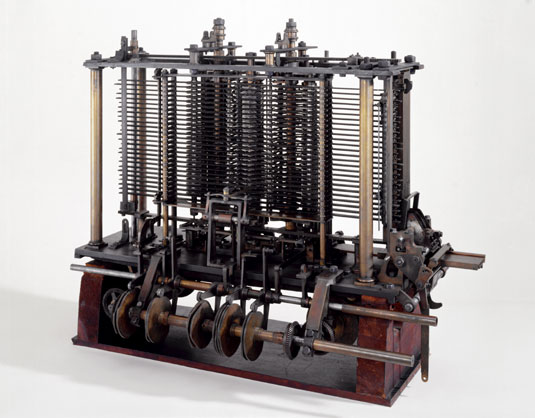|
The first computer
The first use of the word "computer" was recorded in 1613, referring to a person who carried out calculations, or computations, and the word continued with the same meaning until the middle of the 20th century. From the end of the 19th century the word began to take on its more familiar meaning, a machine that carries out computations. No single device can be identified as the earliest computer, partly because of the inconsistent application of that term.
In 1822, Charles Babbage, a British professor of mathematics, began developing the Difference Engine, considered to be the first automatic computing engine that was capable of computing several sets of numbers and making a hard copies of the results. The Analytical Engine was designed to be powered by a steam engine and was to use Punched Cards, which was used to program mechanical looms at the time. What made the Analytical Engine unique was that it was designed to be programmed. But the first computer, in the modern sense of the term, is generally agreed to be the ENIAC, developed in the United States of America during the final years of World War II. References and useful resources:
|

